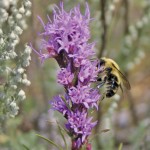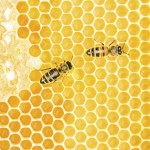
Tag Archives Pesticides

Pesticides could lead to ‘pollination deficit,’ EU report says

VIDEO: Wingssprayer system eliminates spray drift
Manitoba Ag Days Inventor's Showcase: Invention from the Netherlands could make big impact on the Prairies

USDA report says no risk from pesticide residues

Video: Exhibit shows pollination isn’t only done by bees
Museum curator Diana Bizecki Robson hopes it helps public deepen their understanding of all types of pollinators and to take actions that help these organisms thrive

The neonic debate: science or sensationalism?
Laying the blame for a collection of environmental issues at the feet of a single technology is very convenient, but hugely overly simplistic

Pesticide labels and our reputation
The costly consequences of breaking the rules

Study documents benefits of organic farming
Organic crops had 18 to 69 per cent higher concentrations of antioxidant compounds meaning consumers get more nutrition per calorie

Cosmetics pesticide use will be history by 2015 in Manitoba
Critics have little confidence in Health Canada reviews of pesticides because its assessments are based on data supplied by industry
U.S. proposes new safety rules for farm pesticide use
The U.S. EPA wants to better protect approximately two million farm workers from exposure to pesticides
Farm group fingers agency for slow introduction of generic pesticides
Farmers of North America say Canada’s overly onerous regulations mean cheaper generic farm chemicals are hard to find north of the U.S. border
Afederal agency that’s supposed to help farmers get their hands on cheaper generic pesticides is instead throwing up roadblocks to their introduction, according to critics. Ottawa introduced regulatory changes three years ago to speed up the introduction of generic versions of off-patent pesticides, but the Pesticide Management Regulatory Agency “has not bought into that agenda,”

